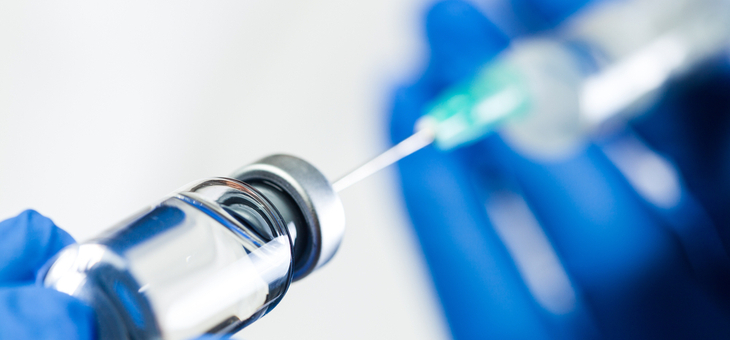The federal government has announced that COVID vaccine booster shots are “likely” to be available to all Australians by the middle of November.
Federal health minister Greg Hunt said on Wednesday: “We want to commence that in the second week of November, subject to advice that we have and confirmation both from ATAGI [Australian Technical Advisory Group on Immunisation] and from the TGA [Therapeutic Goods Association].
“We are ready, we’re in a position to commence and to make sure that additional protection is provided.”
Accused of vaccine rollout failures through most of this year, the federal government has taken note of international trends and is seemingly getting on the front foot.
While Israel and parts of the US and Europe had swathes of citizens vaccinated early, there is evidence that vaccine effectiveness wanes over time, meaning booster shots are necessary to maintain protection against the virus.
After a slow start, Mr Hunt says Australia now has “sufficient vaccine” to begin its own booster shot program.
Australia’s double vaccination figures this week ticked over 70 per cent for people aged 16 and over, with the first-dose vaccination rate now at 85.5 per cent and the total number of jabs at more than 33.2 million.
High vaccination rates have been credited with lower hospitalisation and death rates in Melbourne and Sydney during the current outbreaks.
Read: Will you be eligible for a COVID booster shot? And when?
While the initial rollout prioritised senior Australians and those in aged care, the booster program is not expected to target priority groups, although aged care workers will likely be first in line.
“There’s unlikely to be the need to prioritise,” says Mr Hunt.
“The simple thing is time, and because we have sufficient vaccine, we have a system which is capable of delivering, [and] my understanding is every state and territory has spare capacity at this point in time, so we want to keep the machine running to keep the program rolling.
“There’s a clear direction that [vaccines] are likely to go towards aged care, and it’s likely that we will have general population but we also have to actually have the TGA approval. That is in the late stages.”
Severely immunocompromised people would also be near the front of the queue, says Mr Hunt.
“Australians who are severely immunocompromised may have a decreased immune response to a COVID-19 vaccination and be more at risk from severe COVID-19,” he says.
“If you or someone in your family are severely immunocompromised, we encourage you to reach out to your GP or specialist to discuss whether an additional dose is required.”
Aged care residents could receive jabs from the second week of November, pending approval from the TGA, which meets on Monday.
The key consideration will be the time interval that had passed since a second dose. Authorities are still evaluating the optimal gap between initial doses and boosters, but the first vaccinations began in late February, about nine months before the booster shots should begin in mid-November.
Read: Will we need COVID booster jabs?
Uptake of booster vaccines in the early priority cohorts will be monitored, with the government prepared to intervene if people aren’t booking appointments.
The third jab would most likely be available to the general population by December.
Data from overseas shows the vaccines are “safe” and “effective” in “all age groups”, says chief medical officer Professor Paul Kelly.
“Particularly in Israel, where they have gone very rapidly with a booster program for the whole population, and we are able to look at the data from Israel and it confirms this is safe, effective in all age groups for both decreasing infection as well as severe disease, and for the older age group, death prevention,” says Prof. Kelly.
The booster vaccine in Australia will initially be the Pfizer option, as the TGA is still waiting on applications from Moderna or AstraZeneca to give their vaccines as boosters.
“We fully expect other companies, particularly Moderna, to come through with that information in coming months,” says Prof. Kelly.
“Mix-and-match” vaccine dosage – where someone would have two doses of AstraZeneca then a Pfizer booster – would also “likely” be approved, he adds.
Prof. Kelly also stressed that two doses of a COVID vaccine still made a person “fully vaccinated” and would not speculate on whether a third shot would be mandated.
Read: COVID booster jabs needed for older Australians: vaccine body
Infectious diseases physician and microbiologist Professor Peter Collignon says people shouldn’t scramble for a third dose.
He says there is “no doubt” antibodies protecting people from the virus would “fall with time”, but so far the data has not shown that rates of serious illness, hospitalisation and death from COVID increased six months post vaccination.
“There is a lot of evidence immunocompromised people had a poorer immune response to begin with, so there is certainly the case for them to get the third dose,” Prof. Collignon says.
“But in the general population we have the luxury of time because most people have only just been vaccinated.”
He says the “next big danger” would be winter next year, but by then there would be significantly more research from Europe and the US on the need for boosters.
“We shouldn’t rush it,” he adds.
Are you keen to get a third jab, or would you rather wait? Why not share your thoughts in the comments section below?
If you enjoy our content, don’t keep it to yourself. Share our free eNews with your friends and encourage them to sign up.

